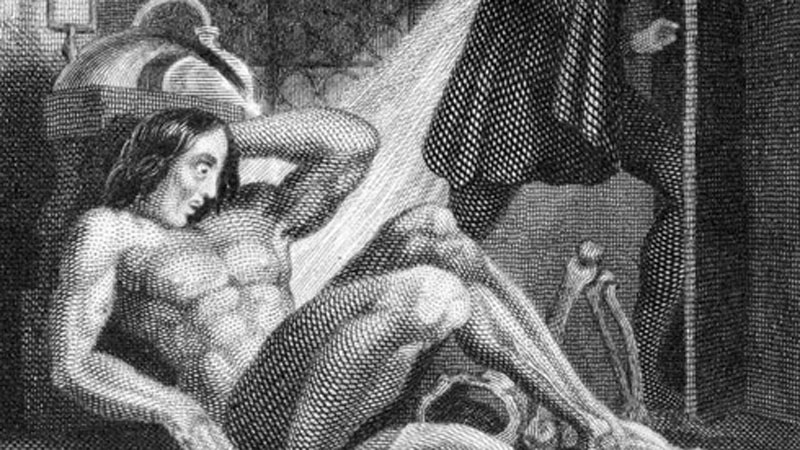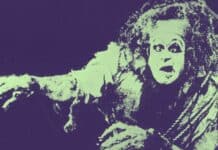MATT WINGETT explains how Frankenstein changed him as a youth…

Mary Shelley’s Frankenstein. It was in this book that I found my first fully articulated view which spoke against a myth that lays on all of us to greater or lesser extent: that of Original Sin.
I hadn’t consciously recognised how that myth of Adam’s first disobedience left the human being feeling – even in the 1970s modern world of petrol cars, and science, and mainframe computers, and the latest in synthetic fabrics – somehow not good enough.
Up to then, even though I found… the God myth deeply wrong, I knew that man’s head was bowed before Him because man was flawed and at fault. Why? Because this is what my parents were taught, and their parents, and this is what I was taught at school. It is an unspoken and unrecognised sense of being not good enough that we are born into.
With Mary Shelley, Frankenstein’s creation is not born flawed. He is born innocent, but he is reviled because of his looks, his skin, his physical presence – and so in vengeance he decides to embody the evil that humanity has created from the shadow it casts.
I had no idea of this at the time: that Mary Shelley was my introduction to the fight back against the Judaeo-Christian myth which has upheld the great chain of being, the rule of royalty, the wisdom of your elders and betters, the placing of gangsters in charge of countries and calling them kings.
But I felt something – a new possibility in my teen years when I read this book – something which felt different and liberating in comparison to the old stories that went before it, stories which demanded obedience because your putative creator said that should be so. This Prometheus could overthrow his God, and that message stayed with me long after the story was forgotten.







